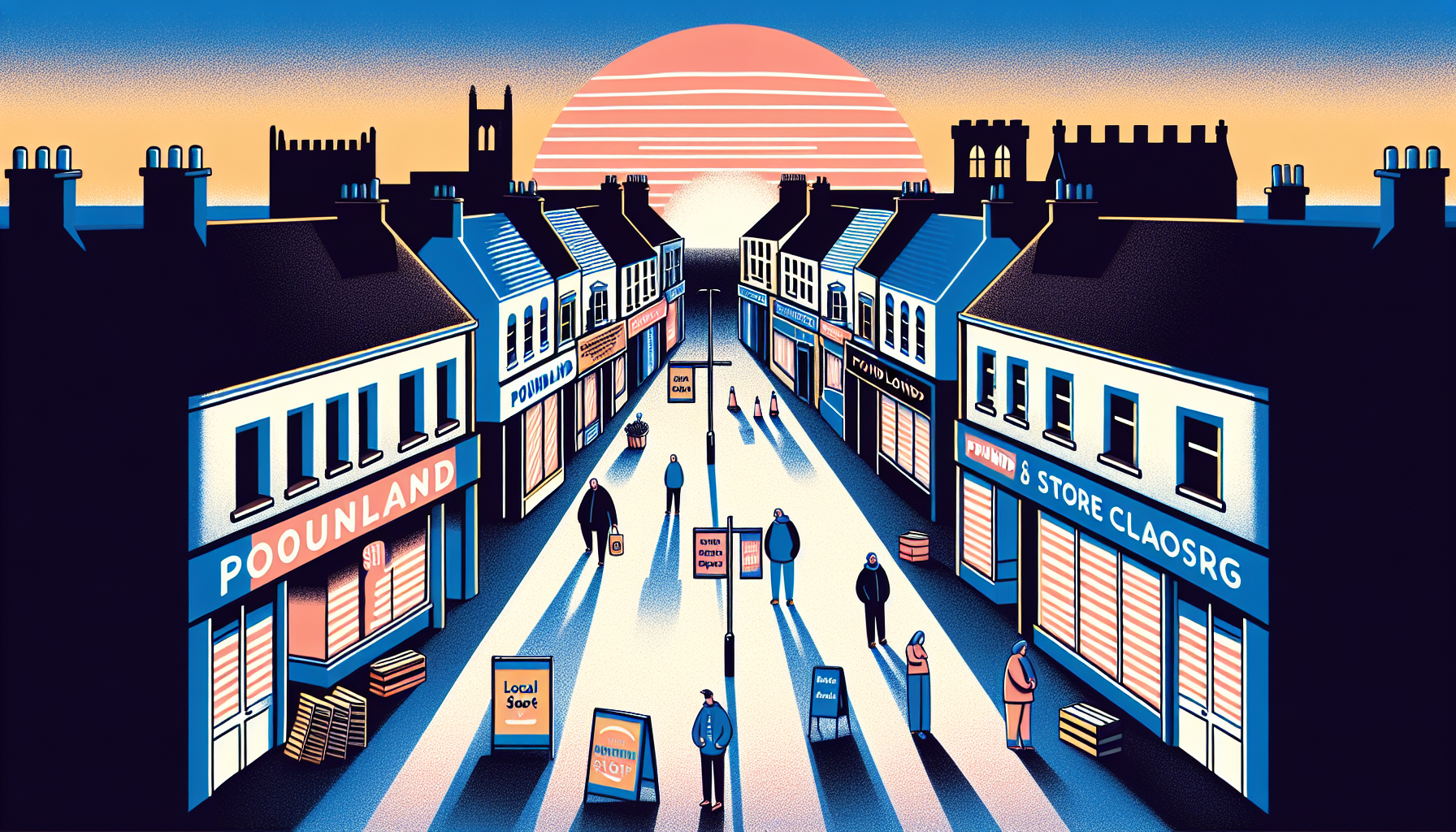Title: More Than Just Pennies: The Changing Landscape of Poundland and What It Means for Us All
Dear Savvy Shoppers and Curious Minds,
Every city block that once promised bargains below the Poundland façade now stands in a state of flux. Spanning from bustling city corners to quiet suburban streets, Poundland has long been synonymous with thrifty deals and convenience. Yet, as the UK braces for the closure of 68 branches, we find ourselves at the intersection of nostalgia and economic necessity.
So, what's shifting?
A Turnaround Plan Cloaked in Uncertainty
As the economic landscape shifts, so too must the retailers entrenched in it. Recently, Poundland announced a strategic, albeit painful, decision to shutter dozens of its stores. With more than 1,000 jobs teetering on the brink, the company aims to steer its leaky ship back to calmer waters under the guidance of their new owner, the US-based Gordon Brothers.
During turbulent times, change is often an unwelcome companion. Much like the classical retail nostalgia of browsing bargain aisles in Poundland, these closures echo a larger metamorphosis that’s reaching across not just economies, but daily life. It’s about recalibrating from what we once valued to what we must adapt to.
For Barry Williams, Poundland's managing director, tough calls are the order of the day. He acknowledges the closure strategy as a regrettable yet essential lifeline. It's the kind of decision-making that reflects a harsh realization—endurance sometimes means retreating to advance.
Of Rent, Retail, and Resources
Remember the heady days when a quick trip to Poundland would fulfill whimsical desires and practical needs in equal measure? Perhaps you've reminisced about that remarkable £50 spree where the cart overflowed with delights. Yet, what was a burst of consumer joy has been buffeted by a typhoon of economic pressures.
The warning signs were there. As retailer Pepco relinquished its hold, citing factors like rising employer National Insurance contributions, the writing was on the wall. The trust in simple economics—that a company trading items for pounds apiece could indefinitely outrun economic downturns—was a fragile fantasy.
It's not just about closing stores or halting online transactions. Poundland is narrowing its focus, forsaking frozen foods for more essential groceries, and bolstering its clothing sections. It’s a pragmatic pivot in a world fixated on specialization.
A Broader Discussion on Cost and Community
This isn't merely a narrative about shuttered storefronts; it's a reflection on community economics and the changing face of the high street. How did we arrive here?
For shoppers, this can feel as personal as it is financial. Just as the warmth of community is irreplaceable in a rapidly digitizing world, the tactile experience of a neighborhood retailer remains unmatched. It’s a dance between cost-cutting measures and the community’s pulse.
Grocery bills are on the rise, and savvy shoppers are redefining priorities to navigate this evolving labyrinth. With whispers of future closures contingent on landlord negotiations and lease expirations, the echo of uncertainty is palpable.
A Pulse on the Present and Path Forward
Poundland's strategic pivot is far from a solitary tale. It's a microcosm of the broader retail shake-up—where traditionalism meets innovation, and where hardship meets hope. Thus, as businesses recalibrate, so must we.
This saga brings to the fore not just the resilience of businesses, but ours as consumers. It's a moment for reflection—a call to consider what community and commerce mean in an age of shifting sands.
So, dear reader, as you traverse your local high street or ponder your next purchase, remember this: every price tag tells a story, and every shopping choice casts a vote for the kind of economic landscape we wish to nurture.
Until next time, let’s keep learning, adapting, and supporting the fabric of our communities.
Yours in contemplation and action,
An Observer of Markets & Mutability

